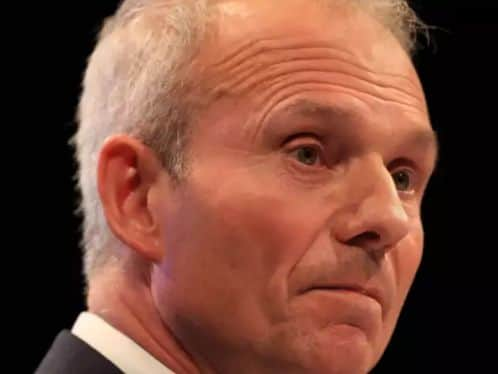Plans for '˜frozen' post-Brexit powers published by UK Government
It follows a leak of the proposals yesterday ahead of the latest round of talks between ministers from London, Edinburgh and Cardiff, leading to accusations that the UK Government was seeking to "bounce" devolved administrations into accept the list.
Among the 24 areas where the UK Government wants to keep temporary control are public procurement rules, animal health, food safety, and food labelling. In Scotland, another 24 new powers would be devolved automatically, while 59 would be subject to non-legislative frameworks requiring consultation on decision-making between the different governments.
Advertisement
Hide AdAdvertisement
Hide AdThe document published on Friday reveals there is disagreement in a number of areas where that the UK Government believes are reserved, and where the devolved administrations should have no input, such as state aid rules and the rights of migrants to claim benefits.


“The vast majority of these new powers will be in the control of the devolved administrations on the day we leave the EU. There is a much smaller group of powers where the devolved governments will be required to follow current EU laws for a little bit longer while we work out a new UK approach.
“We are discussing with the devolved governments how this process will work but, as the UK Government, we feel very strongly that we must have the ability to take action to protect the UK internal market which represents a huge investment to everyone in the UK.
“We are publishing this material today because this can no longer just be a conversation between governments - this process has to be open and transparent. These issues are of central importance to Parliament and the devolved legislatures, as well as businesses and wider stakeholders whose day to day activities will be affected by these decisions."


The SNP’s Brexit minister Michael Russell claimed that without further concessions from Whitehall, “the UK will have the right to take control of any of the powers on this list”.
Mr Russell said: “The publication of the categories demonstrates the threat is most immediate in key devolved areas such as agriculture, GM crops, fishing, environmental policy, public procurement, food standards and a range of other areas.
“Unless the bill is changed Westminster could soon be in control of these policies amounting to a major power grab and a re-writing of the devolution settlement the people of Scotland voted for so decisively.
“I am also alarmed to see some powers included in a further category, which the UK Government says are reserved and would therefore in their view not even require consultation with the Scottish Government. These include Geographical Food Indicators – vital for key Scottish industries – and State Aid which has a role in supporting our economy. We do not agree, for example, that all of State Aid is reserved.
Advertisement
Hide AdAdvertisement
Hide Ad“For the Scottish Government there is a clear principle at stake – what happens to any devolved power must be a matter for the Scottish Parliament. The parliament may decide that in some devolved policy areas it makes sense to have UK-wide frameworks, but this must be a matter for Holyrood, not the UK Government.”
With the three governments so far unable to agree on how the powers will be managed, an amendment to the Withdrawal Bill is expected to be tabled early next week that does not have the support of the devolved administrations.
Nicola Sturgeon and Theresa May will take up the dispute when they meet on Wednesday. Scottish Secretary David Mundell admitted negotiations could drag on until May, when the House of Lords is expected to pass the vital legislation.
Mr Lidington added: “The UK Government have moved a considerable distance to accommodate the concerns of the devolved government and other parliamentarians. It is now time for others to engage in a similarly constructive manner. We have not yet been able to reach an agreed way forward on Clause 11 but I remain hopeful that we will still be able to.”
